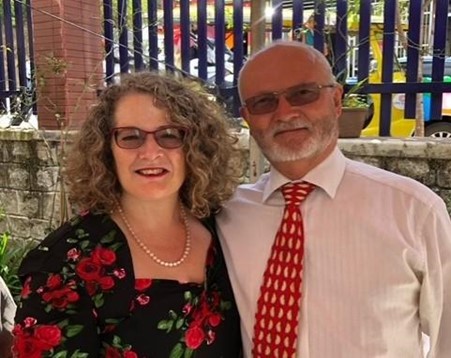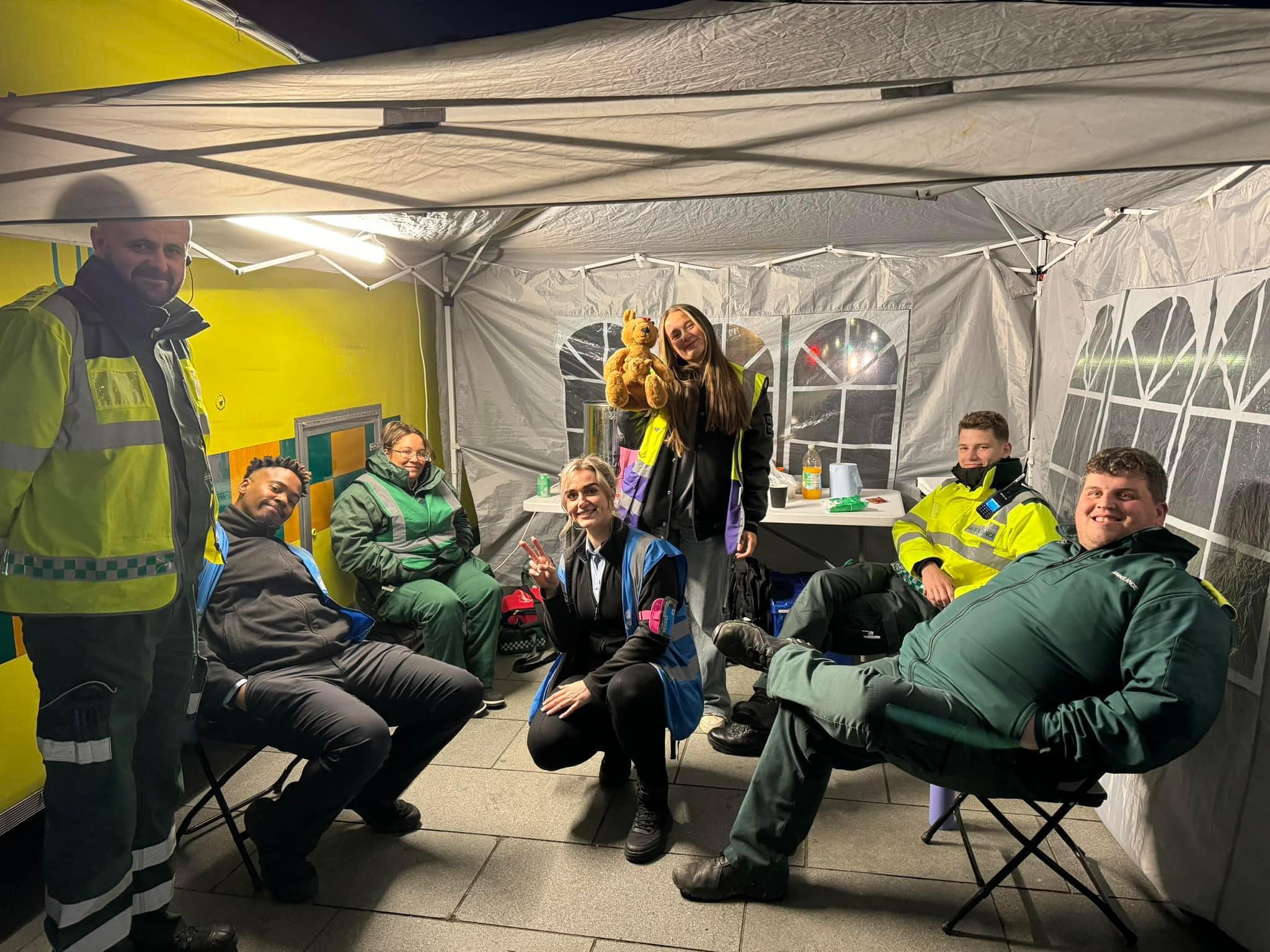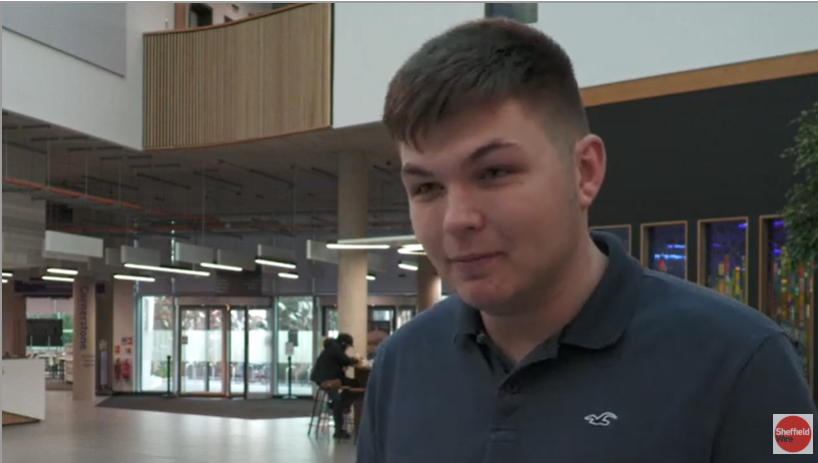
Lockable pouches introduced as school cracks down on phones
Some school pupils will not have access to their phones for the entire school day as lockable pouches are made compulsory.
Firth Park Academy in Shiregreen made Yondr phone pouches compulsory this week in a bid to crack down on students' phone usage.
Children keep the pouches with them all day, locking their phones away at the beginning of the day, and only being able to get them out at an unlocking base.
An increasing number of schools are starting to ban phones entirely, with Forge Valley school on Wood Lane banning bringing phones into the school in September.
Firth Park Academy said that the new phone pouches are “so that our students can focus on their learning and on developing relationships with their peers face to face.”
Some parents have concerns about the complete banning of phones, since it means that if they want to contact their child, they will have to go through the school.
One parent, Leanne Bolsover, said: “I wasn’t happy as the school never asked me how I felt about it.” Ms Bolsover expressed her concern about not being able to reach her son, saying that he has had to call her several times after being locked in a changing room.
Ms Bolsover said her daughter was told that if she didn't bring her pouch in, a “teacher will have to scan her” to check for a phone.
A spokesperson for Firth Park Academy has denied all claims of scanning.
Other parents also spoke of how they did not feel consulted, with one claiming that they were only told about the rule two or three days before it came into effect.
If students do not agree to lock up their phones they risk being sent home, and parents will have to pay to replace a lost pouch.
The ban follows the school’s last Ofsted inspection in April, where they were again judged as ‘good.’

Sheffield Hospitals Charity’s festive scheme expands for its second year
A festive scheme by Sheffield Hospitals Charity’s encourages locals to support their community when disposing of their Christmas tree this year.
Following the success of the initiative in selected postcodes last year, which was fully booked, the charity has expanded the campaign across Sheffield.
The charity supports patients, staff, training and ground-breaking research in various Sheffield hospitals and community care facilities, such as the Northern General, the Royal Hallamshire, Western Park Hospital.
Director of Fundraising at Sheffield Hospitals Charity, Max Newton, said that this year's donations will support people with dementia, and help to fund three main projects: keeping people with dementia out of hospital, providing training for NHS staff and carers, and making hospitals more dementia friendly.
The scheme, in partnership with Just Helping, will also help keep Mayfield’s alpacas warm this winter, as recycled trees are to be used as bedding at Mayfield Alpaca Farm.
He said: “Essentially, you put your Christmas tree up and by the end of December, you want to get rid of it. Maybe it stays in the garden rotting or you have to take it to the tip. We solve all of that - book in with us, make a donation and we’ll come and collect it for you.”
Freya Kingswood, Community and Events Fundraising Manager at Sheffield Hospitals Charity said: “Our collections are a sustainable, hassle-free way to get rid of your real Christmas tree once the decorations come down whilst also supporting patients and staff across Sheffield’s NHS.”
To get involved, residents can book a collection slot online through Sheffield Hospitals Charity's website for a donation of their choosing.
Local charity The Yorkshire 4x4 Response team will be lending their vehicles to help make this initiative possible, and will receive 15% of monies raised after costs from this scheme.
Max Newton said: "It is super quick and easy, you can do it all on your phone, even on the bus on your way home from work."
The expanded collection area now covers the following postcodes: S5, S6 1, S6 2, S6 3, S6 4, S7, S8, S10, S11, S35, S36 1, S36 2, S36 8.

Sheffield artist brings colour to Ecclesall Library to tackle graffiti
A ‘bright and colourful’ mural has been unveiled at Ecclesall Library in a bid to tackle graffiti on the building.
Nicole White, 36, from Sharrow Vale, who painted the mural, hopes the artwork will also encourage more people to use the library.
The artist and several other local creatives were approached by the South West Local Area Committee (SWLAC) to paint the shutters at Ecclesall Library, which had been vandalised.
Nicole said: “I was really excited because I grew up in Ecclesall. I used to walk past the library on the way to my friends house, so I had a special interest in the project and it would be so nice to leave a mark there.”
The project, which aimed to turn a ‘negative into a positive’ was initiated after consultation meetings were held with the community who unanimously agreed to have a mural painted.
Nicole, who first began painting murals while travelling in Peru, designed two images and library users voted for their favourite.
The final design received 300 votes and a spokesperson for SWLAC described the process as a ‘massive team effort’ in getting to the final product.
Nicole explained working on shutters presented challenges such as access during the day, ridges on the surface, and bitter weather, but with the use of masonry paint, scaffolding and persistence, the mural came together nicely.
She said: “Painting murals is really hard work. It’s a real creative graft.
“Doing big murals is quite an endurance and it can be an emotional journey as well as just painting it. It’s about being persistent."
Nicole has received positive feedback during and after the process. It has also inspired other areas of Sheffield to use street-art as a deterrent for vandalism.
A spokesperson for SWLAC labelled Nicole's work as ‘phenomenal’, praising the idea that she brought street art, elements of a library and nature together in the final mural. The committee also noted the library now stands out and makes people look, which will hopefully increase its foot fall.
Nicole said: “My favourite reaction was after a person panicked one day because the shutters had been rolled up. So he went into the library and said ‘where’s the mural gone?’ It's good to know the artworks appreciated.”

Victory for petitioners calling for action on burial space shortage
Urgent action on the shortage of burial space in Sheffield will be taken by the City Council, after it received a petition with over 7000 signatures.
The petition called on the council to act immediately on the "dire situation" at a packed town hall meeting on 4 December.
Abid Hussain, who organised the petition, scolded the council for not heeding his warnings 15 months ago when there was five years of burial space left.
Now, less than three years of provision remains for the Muslim community in Sheffield.
Mr Hussain said to the council: “We weren't taken seriously enough. We had no recourse but to take this to the public, and the public outcry is here in front of you.”
For Muslims, burial is a religious obligation, so cremation is not an option.
In total, there are 16 council-owned cemeteries in Sheffield and there are Muslim areas in just three of those.
However, Tinsley Park cemetery is already closed to new Muslim burials and flooding at both Shiregreen and Abbey Lane cemeteries is exacerbating both the shortage and the stress it is causing.
During the debate, Councillor for Ecclesall, Shaffaq Mohammed, shared his own worries that his mother’s desire to be buried in her home city would not be possible.
He said: “I want people like my mother to be able to have their final wishes granted.”
The council admitted that it has been aware of the need for more burial site provision for over ten years.
Councillor Kurtis Crossland, Chair of the Communities, Parks and Leisure Policy Committee assured the campaigners that the council bereavement services have been working hard on the issue.
Earlier this year, they approved a comprehensive burial, cremation and cemetery green space strategy which will set a clear path for ensuring long term burial space provision.
However, Cllr Crossland noted that the city cannot wait for this strategy to come into effect.
He said: “We have to find new land now. The clock has been ticking for a long time.”
Campaigners and councillors alike were delighted that the council voted unanimously to refer the issue to the Strategy and Resources Policy committee, one of the most senior groups within the council.
Mr Hussain said he would be looking for a concrete plan from the council in the coming months and urged them to consider the potential consequences of not acting.
He said: “A gentleman, 108 years-old, who fought for this country in two world wars, passed away last week. Imagine if he passed away last week and there was no grave for him to be buried in.”

Storm Darragh: yellow warning issued for Sheffield
Storm Darragh is most likely to affect Sheffield this weekend as a yellow warning has been issued by the Met Office for Yorkshire, with wind speeds expected to reach up to 70mph.
Heavy rain is also expected to impact Sheffield during the weekend, as indicated by the rainfall period experienced yesterday.
Around 20-30 mm of rain is expected widely around the UK while some areas may receive rainfall up 50-60 mm.
People are also being advised to be wary of flying debris during Storm Darragh as it could lead to injuries and may potentially pose a danger to life. The strong winds of the storm may even cause damage to buildings.
Jason Kelly, Met Office Chief Forecaster, said: “Storm Darragh is an evolving system and will bring several hazards which could include power cuts and traffic disruptions.”
Streets Ahead, responsible for highway maintenance works across Sheffield, have set up additional teams on standby from Friday noon to Monday 7am, in preparation for Storm Darragh’s impact on Sheffield.
Storm Darragh is likely to hit the coastal areas of Wales and southwest England the hardest. A red wind weather warning has been issued for such areas in the UK where winds may travel up to 90mph.
Storm Darragh is the fourth named storm of this season in the UK. Storm Ashley was the first one to hit back in October, followed by Storm Bert and Storm Conall, both in November.

Sheffield bus decorated to raise money for Children’s Hospital
Snowflakes have been painted on Sheffield bus as part of First Bus South Yorkshire's re-established partnership with Sheffield Children's Hospital.
The bus company is re-starting their partnership with the Snowflake Appeal, fundraising for Sheffield Children's Hospital to raise awareness and provide better care and facilities.
The campaign, which started in 2004, has been raising money for the improvement in care for children across the UK. This year in Sheffield the money raised will go to an innovative new technology centre.
A dedicated bus has been launched, decorated with snowflakes, traveling across Sheffield. It will mainly appear on the 51 and 52a bus routes as it will pass in front of the hospital.
Holly Newton-Steele, Corporate Partnership Office at Sheffield Children's Hospital Charity said: “The Children’s Hospital Charity is so excited to get our partnership with First Bus on the road!
“With this special vehicle, First Bus is helping us to celebrate the 20th anniversary of our Snowflake campaign. and we're so grateful to them for supporting the occasion.”
First Bus have supported the hospital for over 20 years. Many families connected to the bus company have received care from the hospital.
Lauren Wilks, Marketing Executive of First Bus Midlands, Manchester and South Yorkshire said: “Sheffield’s Children Hospital means a lot to the people of First Bus. They have provided life saving care to our families and we are so happy to be partnering up with them again.”
During the Christmas period, they will be bringing back their popular Santa Bus, with Father Christmas and elves on board. They will be raising money and awareness for the hospital’s phenomenal work, as well as bringing the festive vibe across the city with a cheaper alternative.
The bus will run from 16th December to Christmas Eve.

Sheffield widow launches firefighters’ safety crusade
The widow of a decorated Sheffield fireman who died earlier this year has launched a letter-writing campaign for safer working conditions for firefighters.
Anne Davies, 67, of Ecclesall, watched her husband Jeff Simpson die in her arms on 11 April, less than 20 hours after a lung cancer diagnosis.
Jeff had served in fire brigades across the country for 35 years, and received numerous awards for gallantry after saving a 14-year-old from drowning at the London Docks.
She now believes that years of workplace exposure to toxic hazards and a lack of adequate health screening may have contributed to his death, and that existing PPE and guidance were not enough to protect him.
Anne began researching the causes of lung conditions in firefighters shortly after Jeff passed away, and said: “I felt frustrated that this wasn’t being discussed, and angry that his lung cancer hadn’t been identified earlier.
“Jeff died too young, too suddenly, and it has left a hole in our family that cannot ever be filled.”
Many firefighters develop lung cancer as a complication of interstitial lung disease (ILD), a complex of illnesses which cause scarring and inflammation in the lungs. Studies from the United States show that firefighters are four times more likely to develop ILD than the general population.
Firefighters may also be exposed to a variety of other airborne carcinogens, such as asbestos, silica, and polycyclic aromatic hydrocarbons (PAHs).
Anne is encouraging current and former firefighters to contact their GPs and request that their profession be added to their medical records. She is also lobbying for regular health screenings, and better guidance on workplace hazards & proper disposal of protective equipment such as breathing apparatus (BA).

A fire engine outside of Sheffield Central Fire Station. Credit: author.
The Fire Brigades Union (FBU) has thrown its resources behind the campaign, providing members with a letter template for their GPs and a range of resources on decontamination best practices.
The FBU’s centennial lottery funds further research into links between cancer and fire contaminants at the University of Lancashire.
Gavin Marshall, regional secretary of the FBU for Yorkshire and Humberside, argues that both improved funding for fire services and effective legislation on hazardous materials are needed to improve health outcomes, particularly in cities such as Sheffield.
He cites the importance of readily-available safety infrastructure, such as industrial washing machines or mobile PPE disposal facilities, to preventing the build-up of contaminants, saying: “If we have those national standards, we don’t end up with a postcode lottery where London has all the equipment they need but South Yorkshire only has one or two items”.
A spokesperson for South Yorkshire Fire and Rescue emphasised that the health and safety of their employees is a top priority, and that they have taken numerous steps to reduce the risk of exposure to contaminants.
They said: “Our thoughts go out to Anne and all of the family and friends of Jeff Simpson for their tragic loss."
Anne described Jeff as a lifelong campaigner, socialist and trade unionist, and hopes that her campaign will continue his legacy of commitment to equality and fairness.
She said: “If Jeff’s passing can help raise awareness and drive change for other firefighters, and stop their families losing a loved one too soon like we have, I know he would be extremely proud.”

Sheffield United £100m deal takeover in final stage after ‘punishing 4-5 months’
Sheffield United chairperson Yusuf Giansiracusa has confirmed the club has received English Football League (EFL) approval from COH Sports over their proposed takeover of the team on Thursday.
Prince Abdullah Bin Mosaad Bin Abdulaziz Al Saud, who owns the Blades, agreed to sell the EFL club in October.
Spearheaded by financier Steven Rosen and health entrepreneur Helmy Eltoukhy, COH Sports are set to provide significant funds to manager Chris Wilder in the upcoming January transfer window.
Giansiracusa said: "Dear fans, we are pleased to hear that COH Sports has finally received EFL approval. We look forward to updating you over the coming days."
Wilder was asked about the club takeover at a press conference on Friday. He said: “With all due respect, it was a couple of weeks ago Rob asked me the question and out of the blue, I answered it openly and honestly. And as far as I'm concerned, that would be the first and last time I would speak about it - in terms of the content of what my answer was. So, that's where I'm at with it,”
With 38 points from 18 matches, table-toppers United are scheduled to take on West Brom on Sunday in their Championship away match. Last season, Sheffield was the first team to get relegated from the Premier League after their big defeat to Newcastle United.

Wilder explained that the Blades had a tough time and it was punishing 4-5 months for everybody at the club. Talking about his return at Bramall Lane, Wilder expressed his gratitude to Prince Abdullah and the board for showing faith in the manager.
Wilder also spoke about the ups and downs of the Blades over the last 12 months. Recalling the "harsh reality" of the Premier League, the Sheffield head coach asserted that his side was "battered, bruised and ridiculed" as a football club.
He said: "I went on record saying the best part of the club was the support from our fans and the academy, knowing there was an incredible amount of work that needed to be done in the summer. That's my reason in terms of not really talking about takeovers and everything else."
After the Blades sealed their promotion in the Premier League under Wilder, Prince Abdullah won a High Court battle to take control of the Sheffield-based football club in 2019.

Safe Square returning to Sheffield this Saturday
The Safe Square provides a safe space for people seeking help on nights out in Sheffield city centre.
It is returning on 7th December will operate every Saturday for the remainder of the month.
More to follow.

Nationwide train disruptions cause major delays during rush-hour
National Rail warns of train delays which have disrupted several rush-hour trains.
The disruption is due to a problem with the communication system used by train drivers and signallers.
More updates to follow as the story develops.

Sheffield Council responds to petition over lack of burial spaces
Sheffield City Council voted unanimously on Wednesday to address the shortage of burial spaces in the city in response to a petition created by Abid Hussain.
The Muslim community is particularly affected by the shortage, with less than three years of spaces remaining.
More updates to follow.

WATCH HERE: Exclusive video interview with Willis Marshall, Sheffield’s youngest sitting councillor
Watch Sheffield Wire's exclusive interview with Willis Marshall, the Liberal Democrat candidate for the Woodhouse by-election.
Marshall, 19, is a student at the University of Sheffield, who beat Reform UK’s Andy Hizzard by just 10 votes in the election on November 28th.
